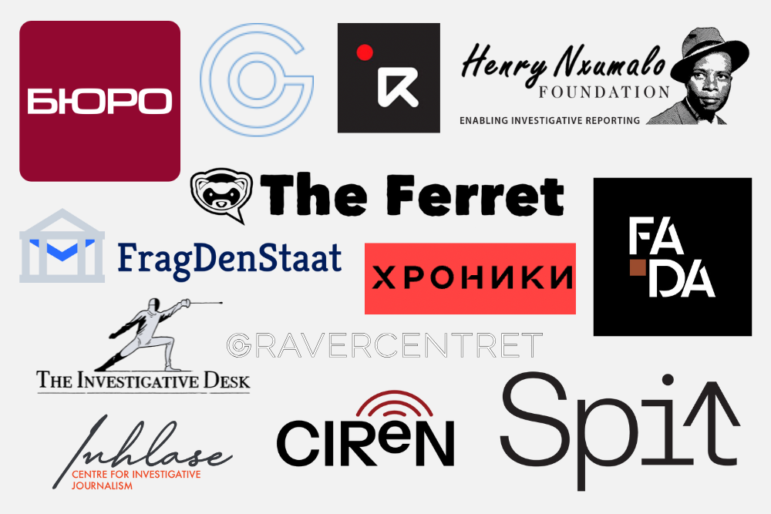GIJN Africa: Safety and Security in Africa
Read this article in
By its very nature, investigative journalism is a perilous undertaking that often places reporters and editors at risk both online and offline.
Journalists who dig up dirt on corrupt government officials and high-handed security agents face threats aimed at stopping the muckrakers in their tracks or gagging their media organizations altogether.
To protect journalists from safety and security risks, some African and global organizations have set up programs that offer support to muckrakers who are in trouble, either in selected African countries or across the continent.
Africa Human Rights Network
Africa Human Rights Network provides a relocation program to shelter cities, Dar es Salaam and Benin. The service is provided to investigative journalists and other human rights defenders who are at risk in Africa, to enable them to continue their human rights work during the relocation period. The services include transportation, accommodation and livelihood, medical assistance and insurance, psychosocial support, capacity building and training, the temporary continuation of work while abroad, exchange and networking programs, and safe return and continuation of work in one’s home country.
African Freedom of Exchange Network
The African Freedom of Exchange Network (AFEX) is a network of 15 freedom of expression organizations across sub-Saharan Africa that work closely to promote and improve press freedom in the region. The organizations are also members of the International Freedom of Expression Exchange (IFEX). The network promotes freedom of expression and human rights on the continent through advocacy and campaigns, and capacity building to ensure the effectiveness of its members and other free expression groups in the region. The Ghana-based Media Foundation for West Africa is the Secretariat of AFEX.
Article 19
Based in the United Kingdom, Article 19 operates around the world to promote rights to freedom of expression and freedom of information. Its activities include the production of legal standards, legal analyses, and critiques of national laws and litigation in international and domestic courts on behalf of individuals and groups whose rights have been violated. Article 19 also works in partnership with other civil society organizations. In sub-Saharan Africa, it has regional offices in Senegal and Kenya and runs two regional programs in West and Eastern Africa.
Association for Media Development in South Sudan
South Sudan is one of the most dangerous places to practice journalism in sub-Saharan Africa as its militarized government tends to clamp down on any critical reporting by accusing journalists of being anti-peace or of supporting rebels. In this difficult environment, the Association for Media Development in South Sudan is one of several organizations advocating for press freedom in the country, working closely with other local organizations and international partners. It launched the Media Development Institute in 2015 which offers a nine-month certificate program in journalism to current and aspiring journalists.
Committee to Protect Journalists — Africa (CPJ Africa)
The Committee to Protect Journalists (CPJ) is an independent global nonprofit whose mandate is to defend the rights of journalists to report the news safely and without fear of reprisal. CPJ Africa’s work includes documenting safety issues, providing safety advisories and kits to journalists at risk, and offering emergency response services.
Free Press Unlimited
Free Press Unlimited has a program geared at offering emergency support to media professionals, journalists, and media organizations worldwide. The Reporters Respond emergency fund provides direct assistance to journalists and media outlets, enabling them to resume work as quickly as possible when faced with a crisis.
Human Rights Network for Journalists – Uganda
Founded in 2005, Human Rights Network for Journalists – Uganda is a nonprofit comprised of veteran and active journalists who work to support reporters who are facing violations of their constitutional rights and fundamental freedoms. The organization carries out research, and monitors and documents threats and attacks on journalists, as well as abuses of press freedoms in Uganda. They also offer legal support to journalists whose work has put them in a situation where they need legal assistance.
International Media Support (IMS)
IMS defends the rights of journalists and works to ensure that they can operate safely in countries where journalists are harassed or attacked for doing their job or where conflict increases the dangers of covering stories. Through its Safety Fund, IMS provides immediate support for journalists who are victimized as a direct result of their journalistic work.
Media Defence
Media Defence administers an emergency fund which helps journalists, bloggers, and independent media pay legal fees, and provides legal expertise to the lawyers defending a case. Journalists, bloggers and lawyers can apply for support for a case here. The London-based organization is also developing a network of lawyers in East, West, and Southern Africa as part of its Digital Rights Advocates Project. The lawyers work on online freedom of expression cases targeting journalists, bloggers, or media outlets. Media Defence also has a series of resource materials on digital rights and freedom of expression around Africa on its website.
South African National Editors Forum (SANEF)
The members of this South African nonprofit are editors, senior journalists, media executives, and senior journalism trainers. SANEF’s main objective is to act as a representative and credible voice of journalism in South Africa, as well as protecting and promoting the country’s hard-won freedoms of expression and media. It is a frequent and respected commentator on issues of press freedom in the country and its statements are often read as the industry’s final say. SANEF campaigns against legislation that threatens to restrict the media space, provides training initiatives, champions community media issues, and collaborates with other media development and freedom of expression organizations. Membership is by nomination and requires the payment of an annual fee. It maintains a list of research on South Africa’s media space and policy documents.
Tanzania Human Rights Defenders Coalition
The Tanzania Human Rights Defenders Coalition (THRDC) was founded in 2010 to enhance the security and protection of human rights defenders in the East African country. The Coalition strives to maximize the safety, respect, and recognition of human rights defenders in Tanzania through protection, capacity building, and advocacy.
The Totem Project
Developed through a collaboration between Greenhost and Free Press Unlimited, Totem is an online learning platform that offers educational courses about digital security and privacy, and related tools and tactics for journalists, activists, and human rights defenders in a safe, online classroom environment. The Totem platform is built using the open-source Open edX MOOC (Massive Open Online Course) software. The platform has been designed to be safe and privacy-preserving by collecting minimal data about its users and also using secure, modern encryption to prevent any eavesdropping.
Voluntary Media Council of Zimbabwe (VMCZ)
VMCZ is an association of journalists, publishers, media houses, and civil society groups working in Zimbabwe’s media space. It was established in 2007 and acts as a self-regulatory body for media in the country. It mediates and adjudicates complaints against media organizations and serves as a link between the media, the government, and other political actors. It offers hands-on training to journalists to support impartial and professional training and build skills; several of its training schemes have focused on investigative journalism skills. VMCZ also organizes Zimbabwe’s biggest media awards, the Media and Investigative Journalism Awards.
For more on safety and security, go to the GIJN Help Desk.









